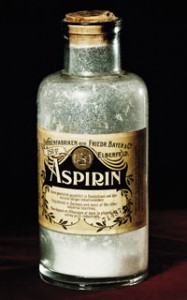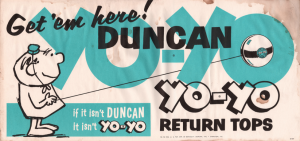When you’re asked for a Kleenex or a Q-Tip, you’re going to hand out a tissue or a cotton swab. But did you know that the word Kleenex is still a legally recognized trademark of Kimberly-Clark? Same with Q-Tip, a word still legally trademarked by Unilever. Ok, maybe you recognize Kleenex and Q-Tip as specific brands, but what about Popsicle or Jet Ski or Roller Blades or DixieCup…or even Zipper? And that’s just the tip of the iceberg!
.
While I was growing up in the 70’s, it seemed like the ultimate goal of every commercial was to turn a particular product into a household name. But what happens when your brand is SO successful that your innovative product name becomes meaningless?
Now you’re looking at the antithesis of brand success…
Brand Genericide: The Problem
When a particular product/brand combination so dominates the market that its brand name becomes the generic term for the item, we call it brand genericide—and it’s terrible news for your brand. Instead of differentiating your business, products and/or services from the competition, now your brand is synonymous and indistinguishable from the competition, confusing consumers and dramatically lessening the power of your brand.
Talk about irony…a company spends millions of dollars to ensure ongoing brand legacy as a household name, yet, in doing so, actually devalues the brand in the long run! THEN, that company has to spend even more money defending their brand trademark. Yikes. Typically, a company will legally lose a brand trademark for two reasons: 1.) The patent expires, or 2.) The company loses a lawsuit after suing another company for using its name, thus the court deems the brand generic.
But get this: just because a legal trademark exists, that doesn’t prevent the public from incorporating a common product or service name into everyday language. Seriously—just google it. (See what I did there?)
More Examples of Brand Genericide
 Aspirin
Aspirin
Created by Bayer in 1897, Aspirin became wildly popular in the first decades of the 20th century. Unfortunately for Bayer, its American patent on the name expired in 1917. Other drug companies jumped at the opportunity, using the word ‘aspirin’ for their own branding purposes. (Photo Source: Bayer AG: Corporate History & Archives)
Escalator
Escalator inventor Charles Seeberger sold the trademark name rights to the Otis Elevator Company in 1910. In an interesting development in national trademark retention law, Otis Elevator Company lost their trademark rights in 1950 in the Haughton Elevator Co. v. Seeberger decision. Why? Because Otis so often used the term ‘escalator’ in a generic manner in their own patents and advertising!
Yo-yo
The yo-yo suffered a similar fate. Though invented around 1866, it wasn’t until 1932 that Donald F. Duncan trademarked the term ‘yo-yo.’ The Duncan Yo-yo Company lost its U.S.trademark in a 1965 case, as the courts deemed the term “yo-yo” too ingrained in common speech to be a unique trademark. (Photo Source: Jason Liebig.)
it wasn’t until 1932 that Donald F. Duncan trademarked the term ‘yo-yo.’ The Duncan Yo-yo Company lost its U.S.trademark in a 1965 case, as the courts deemed the term “yo-yo” too ingrained in common speech to be a unique trademark. (Photo Source: Jason Liebig.)
Efforts in Brand Survival
Xerox
When Xerox introduced the first automated copier in 1959, it wasn’t long before consumers verbified the brand name, (as in, “Can you Xerox these documents for me?”). The company opted for a very aggressive ad campaign to educate the public. A 2003 ad even lamented, “When you use ‘Xerox’ the way you use ‘aspirin,’ we get a headache.”
Band-Aid
Aware that the popular adhesive bandage trademark is in danger of becoming genericized, Johnson & Johnson went as far as to change the lyrics of their television commercial jingle from “I am stuck on Band-Aids, ’cause Band-Aid’s stuck on me!” to “I am stuck on Band-Aid brand, ’cause Band-Aid’s stuck on me!”
Google
Debuting in 1998 and quickly embraced as a superior search engine, ‘to google’ became a verb synonymous with web searching. Many experts actually say that Google has benefited from the usage, citing the fact that people actually go to Google to google. Despite this, Google is concerned with brand genericide, so the company has publicly discouraged the use of the verb.
Is Your Brand at Risk of Genericide?
The good news is only 5% of U.S.brand names risk becoming genericized. But if you’re concerned about the integrity of your brand trademark, the sooner you take action, the better.
Protect your brand by…
- Being aware of your trademark rights
- Educating the public and other businesses on appropriate brand and trademark use
- Stopping other businesses from using your brand name
- Using a generic term after your trademark to provide a description of the product or service
- Never using your brand name in a generic fashion, whether in publications or in any advertising medium
Weigh In…
What do YOU think? Many company leaders would be ecstatic to see their brand name join the American lexicon, but the danger of brand genericide is a very real problem for many big brands.
Do you think companies like Xerox, Band-Aid, and Google have been successful in their efforts to retain the integrity of their brand name? Leave a comment below!
